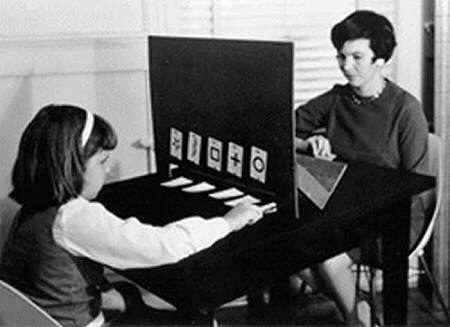Ideally, a human being is born with 5 senses – sight, smell, hearing, touch and taste. These five senses enable us to perceive several actions, stimuli, changes and happenings around him and react to it. The senses are almost always combined to produce integrated responses.
However, since the late 1800s, if not earlier still, researchers and scientists have questioned the distinct possibility of the existence of a sixth sense. While this theory has received widespread skepticism, there have been certain events that have supported the theory. Scientists call this ‘sixth sense’, or more technically – Extrasensory Perception (ESP).
What is ESP?
Extrasensory perception or ESP involves reception of information not gained through the recognised physical senses, but sensed with the mind. The term was originally adopted by psychologist J. B. Rhine to denote psychic abilities such as telepathy, clairaudience, and clairvoyance, and its precognition. ESP is often included under the branch of parapsychology, which is the study of paranormal, psychic phenomena. ESP provides the individual with information of the present, past, and future.
For example, in 1898, Morgan Robertson published a novel called “Futility” about a massive cruise-liner called the Titan; the story appeared to him in a dream state. In the novel, the ship moves through fog on an April night, crashes into an iceberg and sinks, killing hundreds of people. Fourteen years later, an actual ship called the ‘Titanic’, similar to the fictional one, did exactly this, at the same time of year, under the same conditions. For both the fictional ship and the real ship, the casualties were high due to a dearth of lifeboats.
Why does Extra Sensory Perception exist?
Researcher Louisa E. Rhine first proposed the theory that ESP initialises in our unconscious mind which stores memories, hopes and fears. According to her, extra sensory perception occurs when a contact is made between the objective world and the centre of the mind, leaving the person unaware of this contact, unless the information is brought to the conscious level. Similarly, renowned psychiatrist Carl G. Jung theorised that the conscious mind has subliminal psychic access to the collective unconscious, which leads to ESP.

Of other theories, there is one that involves macrophages (a certain type of biological cell). According to the theory, macrophages might be the body’s ESP organs, sending and receiving impressions below the normal perceptive level.
Still other theories involve the discussion of two subconsciousnesses, the second one sometimes called the superconsciousness, soul, subliminal self, transcendent ego, dream self and several other terms. The argument rests on the hypothesis that there is integration between two existing realities, the physical one and a second one. Extra sensory perception can occur when there is integration between both realities. This occurs infrequently only when the barriers between the realities are broken which does not happen often because if it did all unconscious thought would flood and overflow the conscious
Causes of Extra Sensory Perception
In the 1930s, J. B. Rhine worked largely in the laboratory, carefully defining terms related to ESP and designing experiments to test them. A simple set of cards, called Zener cards or ESP cards, was developed, bearing the symbols circle, square, wavy lines, cross, and star; there are five cards of each in a pack of 25.
Next, tests on telepathy, clairvoyance, precognition, psychokinesis, etc. were carried out.
For example, in a telepathy experiment, the “sender” looks at a series of cards while the “receiver” guesses the symbols. To try to observe clairvoyance, the pack of cards is hidden from everyone while the receiver guesses. To try to observe precognition, the order of the cards is determined after the guesses are made.
Skepticism towards Extra Sensory Perception
While there is an significant chance that ESP exists, the scientific community rejects it due to the absence of an evidence base, the lack of a theory which would explain ESP, the lack of experimental techniques which can provide reliably positive results. Thus, most of the scientific community considers extra sensory perception to be non-existent – a pseudoscience.
Skeptics claim that there is a lack of a viable theory of the mechanism behind ESP, and that there are historical cases in which flaws have been discovered in the experimental design of some of the studies.
Some of these flaws are:
- Only favourable results are published. Experiments with larger data prevent this.
- Results may inconsistent, inaccurate, and unrepeatable.
- Charges of fraud. However, these can be refuted by other reputable investigators obtaining similar results.
- Also, ESP in individuals can be distorted by several uncontrollable factors like previous prejudices, thoughts, and conditioning.
- On the other hand, inaccurate ESP messages may be caused by the distortions and blockages of the conscious mind. Surprisingly, however, in times of accidents and death of loved ones, ESP messages seem to occur spontaneously. It has been theorised that trauma and shock probably enable negative information to penetrate the subliminal barriers more easily than happy information.